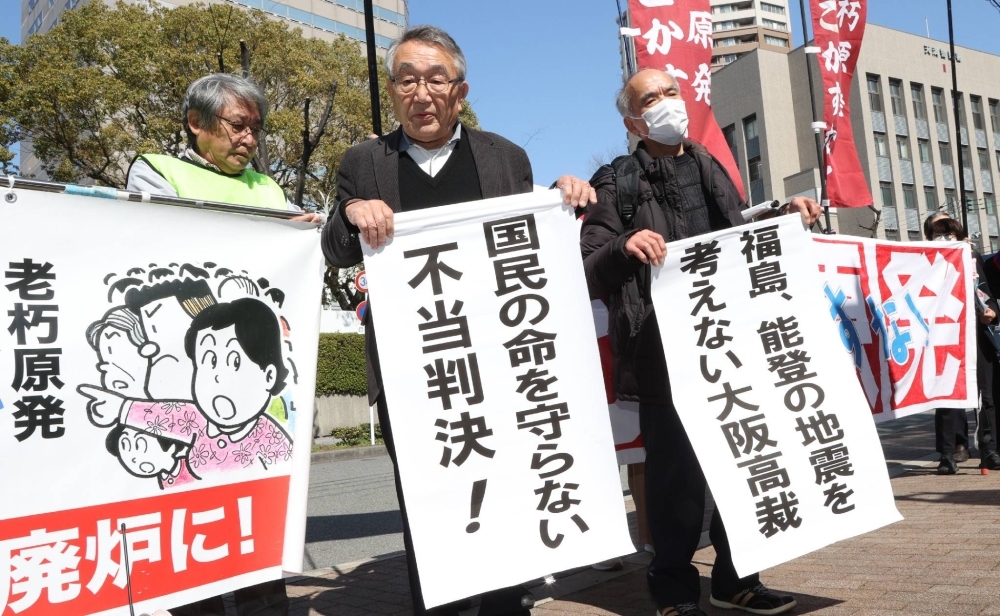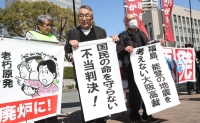A Japanese court on Friday decided a nuclear reactor that started running over 40 years ago in central Japan could continue operations, upholding a lower court ruling that rejected residents' calls to halt the unit over safety concerns.
The Osaka High Court decided against an injunction to halt the No. 3 unit of Kansai Electric Power's Mihama power plant in Fukui Prefecture, saying the court believes it poses "no specific danger."
Seven residents hailing from Fukui, Shiga and Kyoto prefectures have sought the injunction, claiming there were issues with the reactor's ability to withstand a massive earthquake and that it is located near a fault line. They also argued that the current evacuation plans in the event of an earthquake were inadequate.
But Presiding Judge Koji Hasegawa said there were no issues with the nuclear facility, noting it had passed all the necessary checks under the Nuclear Regulation Authority's new safety standards, introduced in the wake of the 2011 Fukushima nuclear crisis.
The Osaka District Court rejected the residents' petition in December 2022 on the grounds that the plant passed the necessary checks, prompting them to immediately appeal.
In June 2021, the No. 3 unit, which began operations in 1976, became the first nuclear reactor to operate beyond 40 years under the new rules, which in principle limit a reactor's service period to 40 years but allow for extensions by up to 20 years if approved by the authority.




